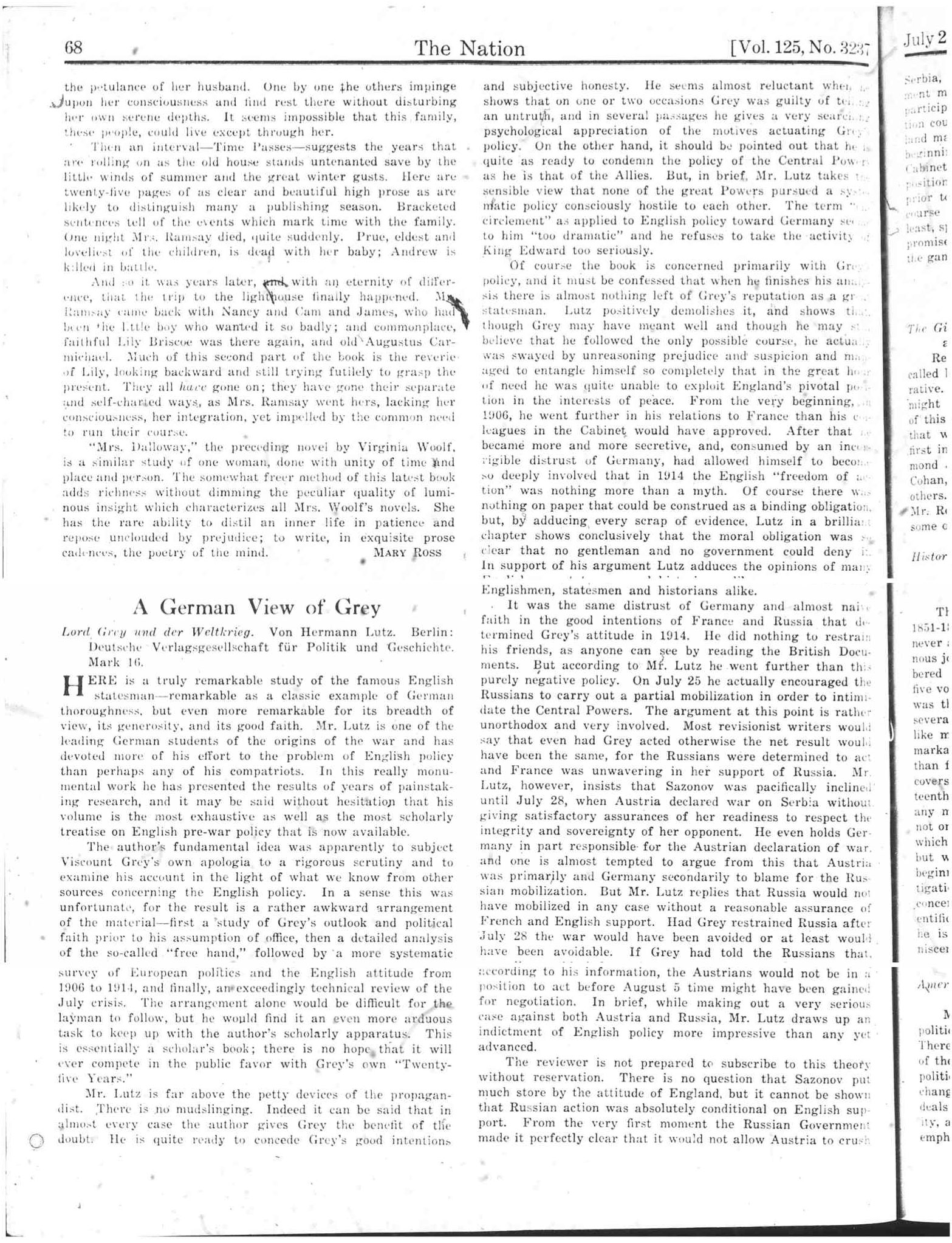
[new page, first column]
the petulance of her husband. One by one the others impinge
upon her consciousness and find rest there without disturbing
her own serene depths. It seems impossible that this family,
these people, could live except through her.
Then an interval—Time Passes—suggests the years that
are rolling on as the old house stands untenanted save by the
little winds of summer and the great winter gusts. Here are
twenty-five pages of as clear and beautiful high prose as are
likely to distinguish many a publishing season. Bracketed
sentences tell of the events which mark time with the family.
One night Mrs. Ramsay died, quite suddenly. Prue, eldest and
loveliest of the children, is dead with her baby; Andrew is
killed in battle.
And so it was years later, and with an eternity of difference,
that the trip to the lighthouse finally happened. Mr.
Ramsay came back with Nancy and Cam and James, who had
been the little boy who wanted it so badly; and commonplace,
faithful Lily Briscoe was there again, and old Augustus Carmichael.
Much of this second part of the book is the reverie
of Lily, looking backward and still trying futilely to grasp the
present. They all have gone on; they have gone their separate
and self-charted ways, as Mrs. Ramsay went hers, lacking her
consciousness, her integration, yet impelled by the common need
to run their course.
“Mrs. Dalloway,” the preceding novel by Virginia Woolf,
is a similar study of one woman, done with unity of time and
place and person. The somewhat freer method of this latest book
adds richness without dimming the peculiar quality of luminous
insight which characterizes all Mrs. Woolf’s novels. She
has the rare ability to distil an inner life in patience and
repose unclouded by prejudice; to write, in exquisite prose
cadences, the poetry of the mind. MARY ROSS






